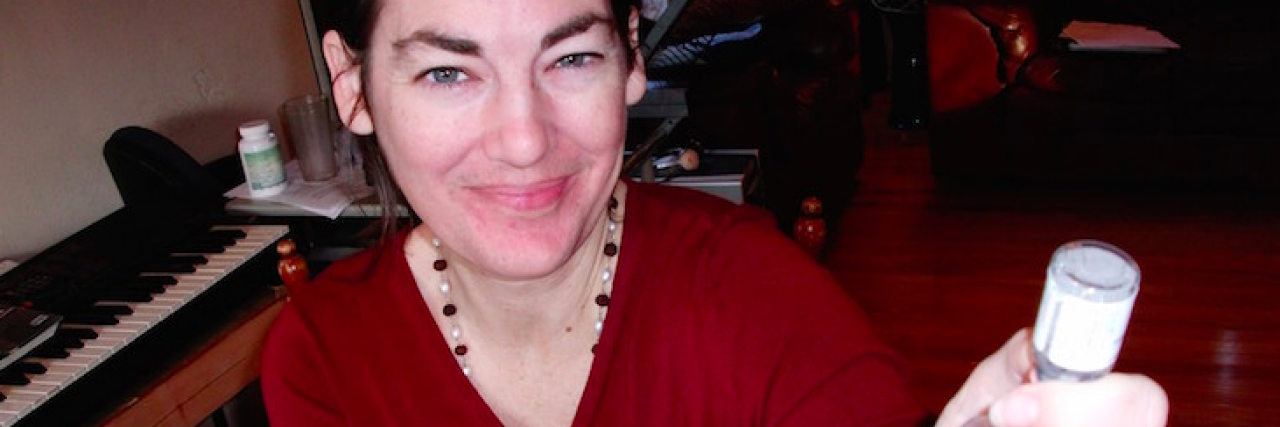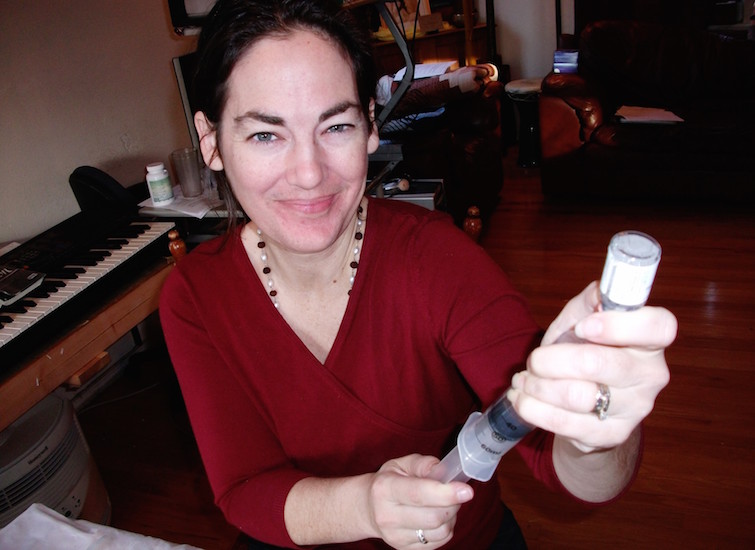When my son was diagnosed with late-stage neurological Lyme disease, my family decided it would be best if I left my position as a yoga teacher/therapist in private practice and become a full-time caregiver. This was to give him the best quality of life and chance at remission, as there is no cure for late-stage Lyme, and it can be life-threatening if it progresses without appropriate treatment.
• The Mighty’s Caregiving Toolkit
As with so many other parents of medically complex children, my life now revolves around medications, all-day appointments at the IV clinic, doctor visits, special diets, and the medical equipment that is scattered all over my house. My world has narrowed down to all things Lyme and remission from Lyme. I am not a doctor, but I am fluent in medical-speak and can now hold my own in conversation with doctors.
When I first left my job, and with it my connection to mainstream American life with its emphasis on individualism/achievement/success/competition/getting ahead, I found it metaphorically difficult to breathe. Like being deprived of oxygen, I felt deprived of my identity as a hard-working professional climbing up the ladder in my field. I had trained, interned, taught my heart out and worked my way up to starting my own business over a number of years. I was now, what? What was I in this culture? When you tell people you’re caring full-time for a family member going through a longterm health crisis, they ask what the illness is and then proceed to tell you about their cousin who had that and recovered using this incredible new fad supplement. Then they politely excuse themselves to talk to someone with whom they have something in common.
Although I’ve always been an idealist and believed in serving others, and was a professional caregiver, the thought of giving my hard-earned career up to do unrelenting work with no pay, no benefits and no respect did not sound all that attractive. In my job I took care of others but got paid to do it and got a lot of respect and social currency from my position. When I talked about what I did socially, people always fawned over what I achieved. I never realized how much I depended on that type of status until it was gone.
As many parents of kids with medical complexities likely know, the look you get when you tell people you’re taking care of your family member full-time — that look of pity, while the person says, “Oh I could never do that. You are so brave/patient/loving/compassionate/fill-in-the-blank” — can make any self-respecting, high-achieving person want to vomit.
But after six months of fully immersing myself in the role of caregiving, something surprising happened. I stopped missing the grind, the constant running around and trying to complete all the tasks, the insane multitasking, the lack of sleep, the worry that I was forgetting an appointment/medication/consult, and the addiction to busyness. After I stopped obsessing over all these things and started to relax, that’s when it happened. I was able to pay attention to the world around me and connect with others with a depth, honesty and availability I had never experienced before. I was genuinely interested in the whole of the world around me, and not just the easy and fun parts.
This is not an essay extolling the gifts of illness. Serious, chronic illness sucks, and if my son ever gets into remission, I will be over-the-moon ecstatic, but I will not return to the values and lifestyle I had before, nor will I ever go back to the superficiality with which I used to conduct my life. As a caregiver, I’ve found a way of being that is so much deeper, so much more authentic than what I ever experienced before.
Being a caregiver has helped me realize the possibility and potential of what I am truly capable of — the width, depth and breadth of myself — and I can finally breathe again.
Image via contributor


